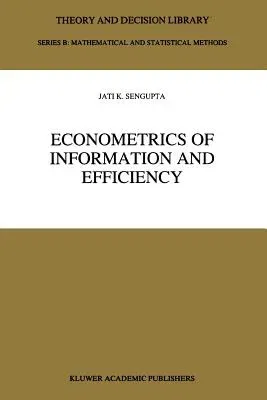Econometrics as an applied discipline attempts to use information in a
most efficient manner, yet the information theory and entropy approach
developed by Shannon and others has not played much of a role in applied
econometrics. Econometrics of Information and Efficiency bridges the
gap.
Broadly viewed, information theory analyzes the uncertainty of a given
set of data and its probabilistic characteristics. Whereas the economic
theory of information emphasizes the value of information to agents in a
market, the entropy theory stresses the various aspects of imprecision
of data and their interactions with the subjective decision processes.
The tools of information theory, such as the maximum entropy principle,
mutual information and the minimum discrepancy are useful in several
areas of statistical inference, e.g., Bayesian estimation, expected
maximum likelihood principle, the fuzzy statistical regression. This
volume analyzes the applications of these tools of information theory to
the most commonly used models in econometrics.
The outstanding features of Econometrics of Information and Efficiency
are:
- A critical survey of the uses of information theory in economics and
econometrics;
- An integration of applied information theory and economic efficiency
analysis;
- The development of a new economic hypothesis relating information
theory to economic growth models;
- New lines of research are emphasized.


